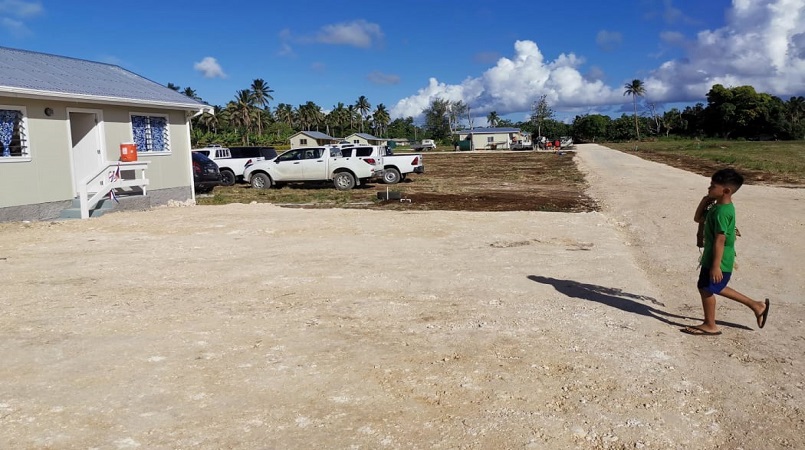
Two entire communities, from the small Tongan islands of 'Atata and Mango, have been relocated to the Kingdom's main island of Tongatapu and third largest island, 'Eua.
The exodus occurred over the past two weeks and comes nearly a year after the Hunga Tonga-Hunga Ha'apai volcano erupted, on 15 January 2022. Both 'Atata and Mango were devastated by tsunami waves, caused by the eruption.
"I and my relatives are going to 'Eua", Mango town officer Sione Vailea said.
"We'll see what happens when we get there. There's no place for us on Mango anymore and the government has declared for my people to relocate."
Up until their resettlement to 'Eua, on 28 December, most of the 70 former inhabitants of Mango had been living at a Methodist church hall in Nuku'alofa. A few others had been able to find accommodation with relatives.
Resettlement has been challenging for the people of Mango, whose ancestors lived on the island from time immemorial.
"No, we won't be going back," said Patiola Tutuila, whose father was killed by the tsunami - one of three people who perished in the disaster.
"We lived in Mango our whole lives, it was our home and we loved it there, but when the tsunami hit, God knows we were all begging and praying to leave, from children to our elders, we were all set on the idea of leaving Mango."
The government had advised Mango and 'Atata islanders to resettle, as their tiny islands remain vulnerable to future tsunamis and cyclones.
"I recall when the boat came to take us out of Mango, we were all asked if we wanted to stay or leave," Tutuila said.
"Nobody wanted to stay behind because we know for a fact that our island is vulnerable, therefore we shouldn't risk our lives.
"My father is buried in Mango but we have to put the living first, the dead comes later and that is why my priority is my family."
This sentiment is shared by many 'Atata islanders, who have relocated to a new settlement of 22 houses near the village of Masilamea on the main island of Tongatapu.
The settlement opened on 20 December, although a few of the houses are still under construction.
Many of the people of 'Atata were used to living a simple, subsistence lifestyle, reliant on their renowned fishing skills.
But now, they must adapt to a new life on the main island. This adjustment has been challenging for some.
"Life in 'Atata was definitely easier," Koli Folau said.
"We did not have to pay for certain things like electricity bills or water bills but, now we have to work harder to afford paying for these things.
"Our people have only relied on the ocean to provide for our families. We are fishermen, not farmers, and now we have to learn to adapt and to cope with the mainland way of living in order to meet the normal standards of living here in our new home."
ome 'Atata community members who have previously lived on Tongatapu are familiar with its commercialised environment. A handful of islanders had also worked on a resort that was once located on 'Atata, before it was destroyed by a storm surge in 2021.
"We have to adapt and we have to change", said Kaufusi Vavekuki, who along with some of the women started selling handicrafts and clothes by the side of the road outside Masilamea.
"There have been worries about our kids getting involved with bad things on Tongatapu like marijuana.
"But we have to change, we don't live on 'Atata anymore."
Tongan delegates attending international and UN-organised conferences in 2022 cited the relocations, resulting from the eruption, as an example of how similar displacements could result from the escalating climate crisis - creating climate refugees.
The resettlement of 'Atata and Mango is not the first time a Tongan island has been evacuated due to a natural disaster.
In 1946, the Kingdom's northernmost island of Niuafo'ou was temporarily abandoned due to a volcanic eruption. It was later resettled, in 1958.
However, the evacuations of 'Atata and Mango are likely to be permanent.
"I really want to go back," 'Atata islander Lisala Folau said.
"But I know it's a foolish thing to do, because I would be putting myself and family at risk."
There are many other tiny inhabited atolls, dotted around the Pacific region. These events highlight just how vulnerable they are.
